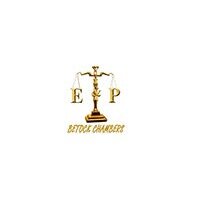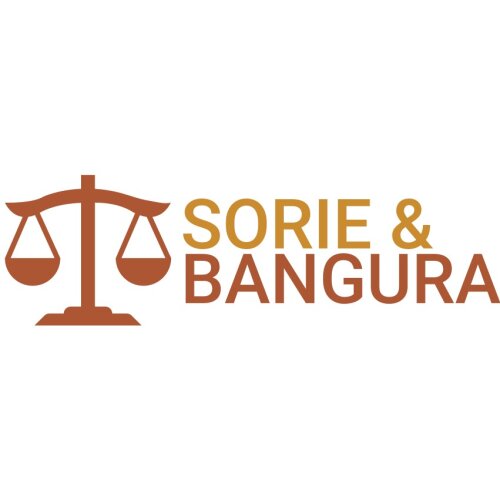Best ADR Mediation & Arbitration Lawyers in Sierra Leone
Share your needs with us, get contacted by law firms.
Free. Takes 2 min.
Or refine your search by selecting a city:
List of the best lawyers in Sierra Leone
About ADR Mediation & Arbitration Law in Sierra Leone
Alternative Dispute Resolution (ADR) methods like Mediation and Arbitration are becoming increasingly popular in Sierra Leone as efficient and cost-effective alternatives to traditional court litigation. ADR offers parties in conflict the opportunity to resolve their disputes outside of the courtroom with the help of a neutral third party.
Why You May Need a Lawyer
You may require legal assistance in ADR Mediation & Arbitration in Sierra Leone if you are involved in a complex dispute that requires professional guidance to navigate the process effectively. A lawyer can help you understand your rights, negotiate settlements, and represent your interests during ADR proceedings.
Local Laws Overview
In Sierra Leone, ADR is governed by the Mediation Act of 2010 and the Arbitration Act of 2008. These laws provide a legal framework for the use of ADR methods in resolving disputes and outline the procedures and rules to be followed during Mediation and Arbitration processes.
Frequently Asked Questions
1. What is the difference between Mediation and Arbitration?
Mediation is a non-binding process where a neutral third party helps parties in conflict reach a mutual agreement. Arbitration, on the other hand, is a binding process where an arbitrator makes a decision that is legally enforceable.
2. How long does an ADR process typically take in Sierra Leone?
The duration of ADR proceedings can vary depending on the complexity of the dispute and the willingness of the parties to cooperate. Generally, Mediation can be completed within a few weeks, while Arbitration may take several months to resolve.
3. What are the advantages of ADR over traditional court litigation?
ADR is often faster, more cost-effective, and offers greater privacy and flexibility compared to court litigation. It also allows parties to maintain control over the resolution process and preserve relationships.
4. Can ADR decisions be appealed in Sierra Leone?
In most cases, ADR decisions are final and binding, meaning they cannot be appealed to a higher court. However, parties can challenge the decision if there are grounds for setting it aside, such as fraud or procedural misconduct.
5. How can I find a qualified Mediator or Arbitrator in Sierra Leone?
You can contact reputable ADR institutions like the Sierra Leone Institute of Arbitrators or the Mediation Centre for assistance in finding trained and experienced Mediators and Arbitrators for your case.
6. What types of disputes are suitable for ADR in Sierra Leone?
ADR can be used to resolve a wide range of disputes, including commercial, family, labour, and property disputes. It is particularly effective in cases where parties wish to maintain a relationship after the dispute is resolved.
7. Is ADR legally recognized in Sierra Leone?
Yes, ADR methods like Mediation and Arbitration are legally recognized and regulated in Sierra Leone under the Mediation Act of 2010 and the Arbitration Act of 2008.
8. What are the costs associated with ADR in Sierra Leone?
The costs of ADR proceedings in Sierra Leone can vary depending on the complexity of the case, the fees of the Mediator or Arbitrator, and any administrative expenses. However, ADR is generally more affordable than court litigation.
9. Can ADR be used to resolve criminal cases in Sierra Leone?
ADR is primarily used to resolve civil disputes in Sierra Leone, such as contract, property, and employment disputes. Criminal cases typically fall under the jurisdiction of the criminal justice system and are not suitable for ADR processes.
10. How can I enforce an ADR decision in Sierra Leone?
Once an ADR decision has been reached, parties can request the court to convert the decision into a court order for enforcement. This ensures that the terms of the agreement are legally binding and can be enforced if necessary.
Additional Resources
For more information on ADR Mediation & Arbitration in Sierra Leone, you can contact the Sierra Leone Institute of Arbitrators (SLIA) or the Mediation Centre in Freetown. These organizations can provide you with guidance, training, and support in utilizing ADR methods effectively.
Next Steps
If you require legal assistance in ADR Mediation & Arbitration in Sierra Leone, it is advisable to consult with a qualified lawyer who specializes in ADR practices. They can assess your case, guide you through the process, and represent your interests effectively during ADR proceedings.
Lawzana helps you find the best lawyers and law firms in Sierra Leone through a curated and pre-screened list of qualified legal professionals. Our platform offers rankings and detailed profiles of attorneys and law firms, allowing you to compare based on practice areas, including ADR Mediation & Arbitration , experience, and client feedback.
Each profile includes a description of the firm's areas of practice, client reviews, team members and partners, year of establishment, spoken languages, office locations, contact information, social media presence, and any published articles or resources. Most firms on our platform speak English and are experienced in both local and international legal matters.
Get a quote from top-rated law firms in Sierra Leone — quickly, securely, and without unnecessary hassle.
Disclaimer:
The information provided on this page is for general informational purposes only and does not constitute legal advice. While we strive to ensure the accuracy and relevance of the content, legal information may change over time, and interpretations of the law can vary. You should always consult with a qualified legal professional for advice specific to your situation.
We disclaim all liability for actions taken or not taken based on the content of this page. If you believe any information is incorrect or outdated, please contact us, and we will review and update it where appropriate.
Browse adr mediation & arbitration law firms by city in Sierra Leone
Refine your search by selecting a city.










